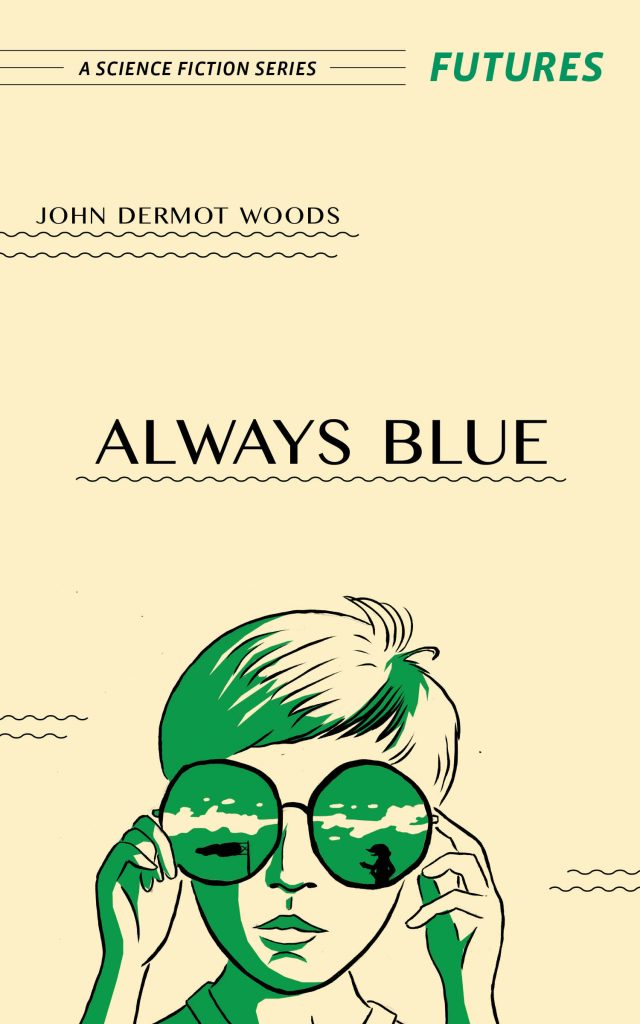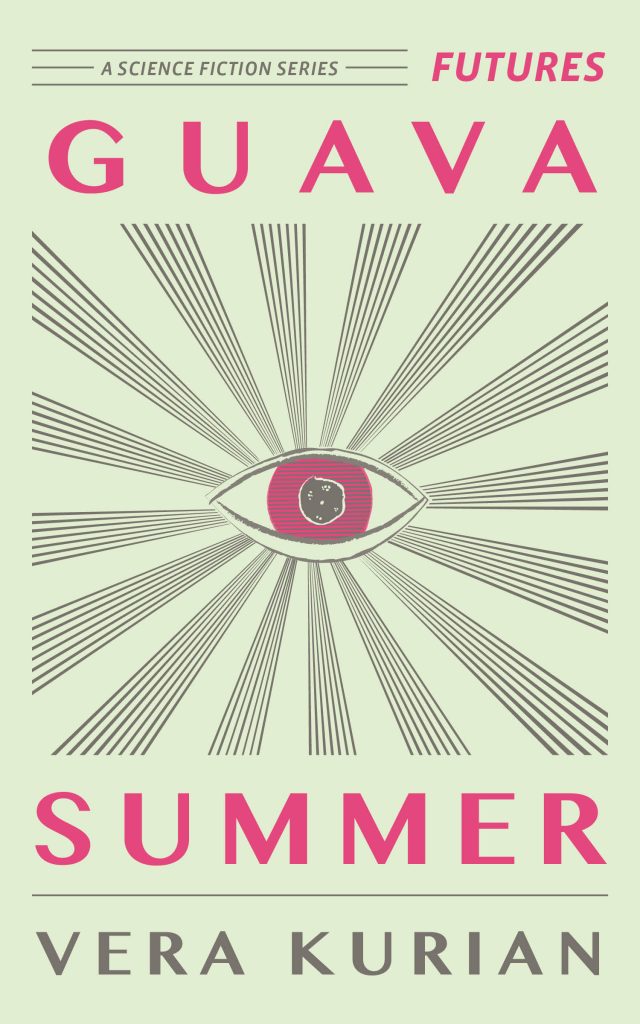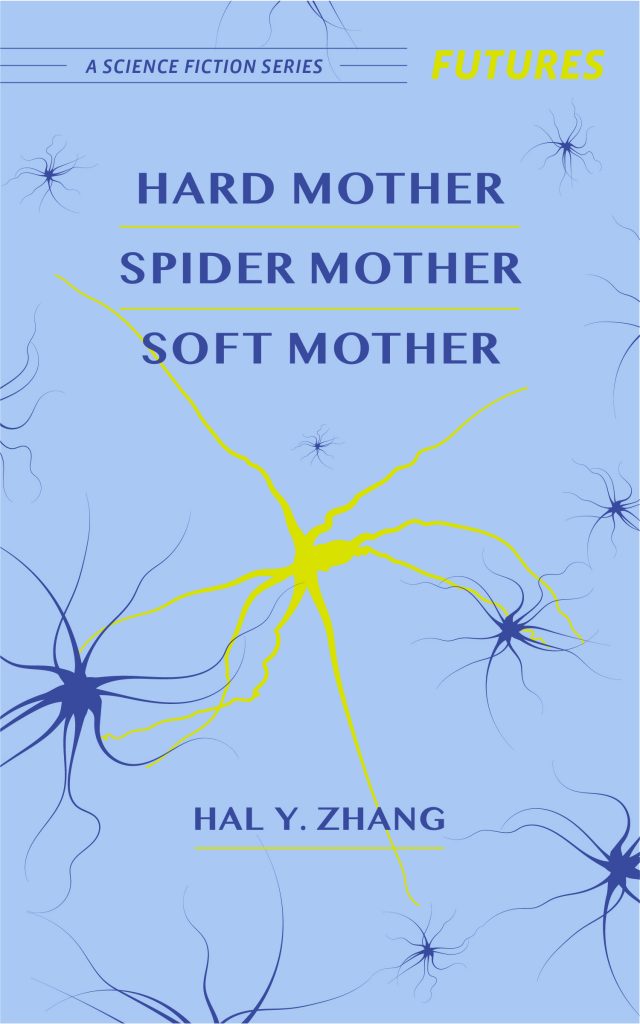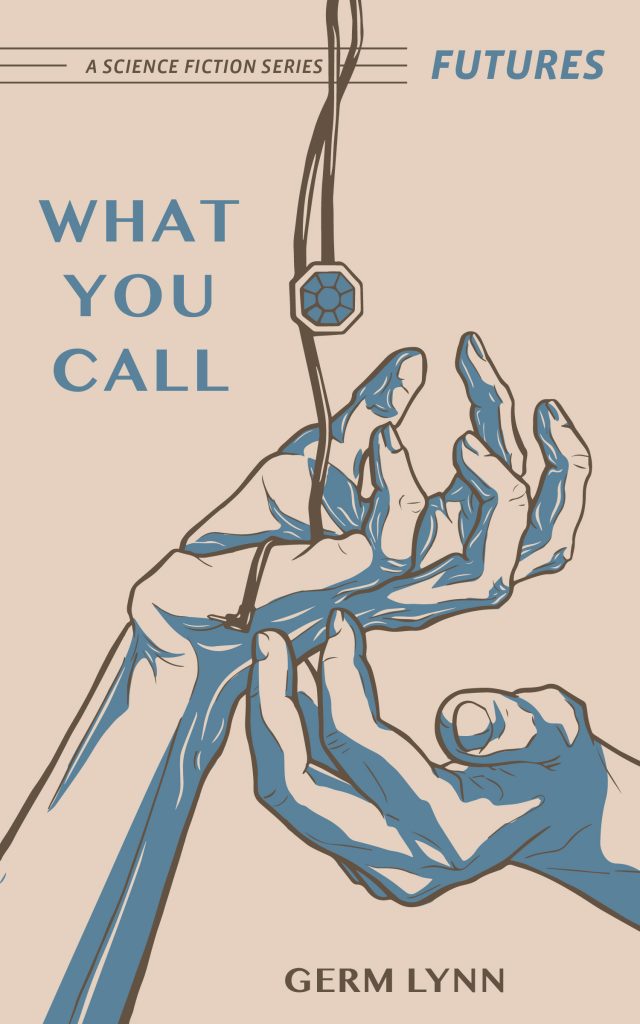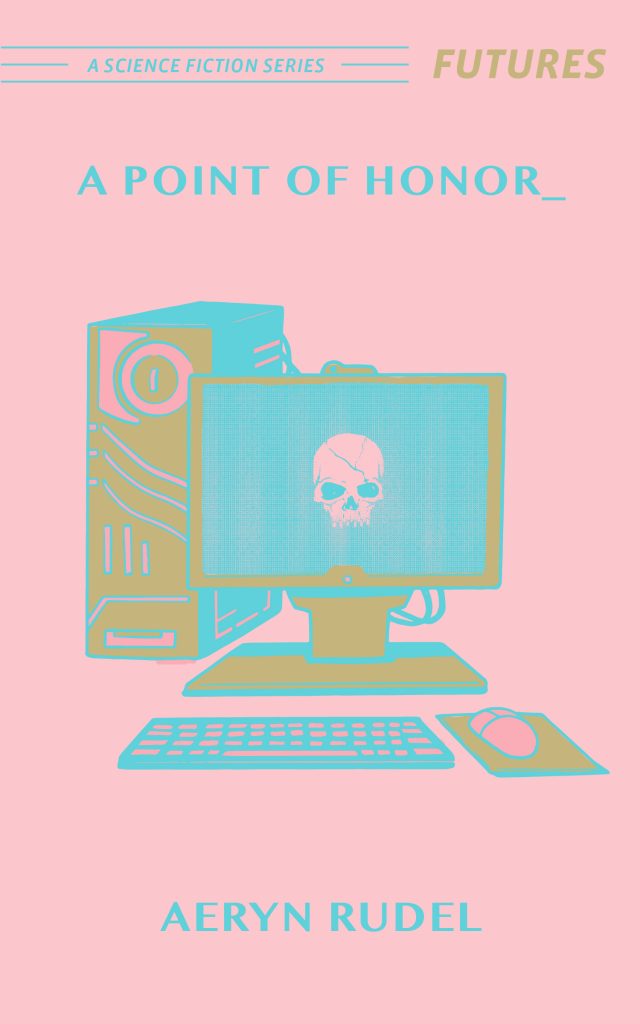A look into the future.
Radix Media is proud to present Futures: A Science Fiction Series.
An embattled wind engineer facing personal and climatic disaster. A society on the brink of collapse. Polar bear mutiny. And, of course, robots. The Futures: A Science Fiction Series box set collects the seven chapbooks originally published as a monthly subscription from April-October 2019. These beautifully illustrated chapbooks explore critical contemporary issues inspiring us to rethink our future.
The box set was named a Gold Winner 2019 Foreword INDIES Book of the Year Awards.
About the Series
Futures: A Science Fiction Series utilizes the chapbook format—a saddle-stitched pamphlet—as a vehicle to explore the stories more fully. Whereas the first project in our publishing program was an anthology, collecting a variety of stories into a single book, this format is more intimate. The chapbooks are thinner and lighter, and when you turn the final page, your journey with that individual story is complete.
Through this format, the reader is more immersed in the stories themselves. We believe that good science fiction reflects the dreams and nightmares of the present day. By exploring the issues contained in these stories, we hope that the reader gains a better understanding of our world today so that they can build the future they want to see.
The Production
We know that good design can take beautiful words to the next level, that’s why we design and print all of our titles in-house. This gives us much more control over the process and allows us to create a more cohesive final product. We strive to make each book an object that is enjoyable to hold and look at, in addition to bringing the reader great content.
Each title in the Futures series has offset printed interiors, and a two-color letterpress printed cover.
The Titles
Futures is comprised of seven stories that we published between April and October 2019 as listed below. They were sold individually as well as through a monthly subscription. The box set includes all seven chapbooks.
Always Blue by John Dermot Woods (April 2019)
Guava Summer by Vera Kurian (May 2019)
Muri by Ashley Shelby (June 2019)
Hard Mother, Spider Mother, Soft Mother by Hal Y. Zhang (July 2019)
What You Call by Germ Lynn (August 2019)
A Point of Honor by Aeryn Rudel (September 2019)
Milo (01001101 01101001 01101100 01101111) by Alexander Pyles (October 2019)
What People Are Saying.
“You don’t want to miss the Futures series. Weird, intense, and intimate, these stories explore how tomorrow’s technologies get under our skins (sometimes literally) and change our personal relationships. There is a sense of wonder here, but it’s not for the march of industrial progress. It’s for humanity, and our astonishing ability to find ever more scientifically advanced ways to love each other and screw each other over.” —Annalee Newitz, author of The Future of Another Timeline and Autonomous
Always Blue
“John Dermot Woods’ eye discerns detail the rest of the world is blind to; his ear picks up frequencies that most of us can’t hear. His deep reverence for and attention to the precise moment, exactingly rendered, comes through in both his language and his drawings. I always feel slightly spellbound when I encounter Woods’s work, like I’m somewhere both entirely familiar and entirely new. Part campus tale, part speculative fiction, Always Blue is funny and harrowing, a sustained, memorable glimpse into an ego—and a society—on the brink.” —Kristen Iskandrian, author of Motherest
Some say the world will end in fire, some say in ice, but Woods understands it’s more likely to end in endless departmental meetings and endlessly-calibrated politeness. Always Blue is a cool-headed look at the future that none of us want but that we may well deserve. A subtle and satirical tale underlaid with an all-too-real grimness.” —Brian Evenson, author of The Open Curtain
Guava Summer
“Dropped into an authoritarian future, Vera Kurian’s story swiftly had me identifying with the unnamed author and their struggles with hiding an illegal android, and navigating the liminal space between the ‘illegal’ that is necessary for survival and the ‘illegal’ that truly is sedition.” —Josh MacPhee, member of Justseeds Artists’ Cooperative and co-founder of Interference Archive
Muri
“Muri is the rare story that perfectly encapsulates itself in metaphor and message. Suffused with dread, and hiding nothing of its consequences, Shelby still manages to pull the reader along, to lull them into the obvious lesson, only to reveal that the true moral is greater and more menacing than what has been imagined. Reading Muri is like being taught how to swim in the ocean, and to be fooled into thinking all you have to fear are the waves.” —Eric Shonkwiler, author of Above All Men.
“Using Herman Melville’s Benito Cereno as backdrop, Shelby reimagines the classic tale of madness, isolation, and revolution for the modern age. With the detailed urgency that would appeal to readers of Margaret Atwood, Allegra Hyde, or Jeff VanderMeer, Shelby’s seminal work confronts head-on the myriad attitudes toward climate change and all the hope and despair at the very heart of ‘the Impact,’ tightly wrapped in brisk, energetic lyricism. Timely, accessible, and precise, this ticking timebomb of a story will wrack you from page one, and will leave you commandeering a line from the book to describe Shelby, herself: that she is the “Paul Revere of Impact,’ riding forward to warn you to wake the hell up before the lantern goes out.” —Leah Angstman, editor-in-chief of Alternating Current Press and The Coil, and editor of Undeniable: Writers Respond to Climate Change
Hard Mother, Spider Mother, Soft Mother
“In this unexpected sci-fi tale, set in a not-too-futuristic surveillance state, Hal Y. Zhang renders Chinese mother-daughter relationships with tenderness and empathy. Come for the brain-eating fungal infections, stay for the insights on generational losses and memory.” —Ling Ma, author of Severance
What You Call
“A document of obsessive love cut with oblique meditations on ability, on posthuman bodies, and on the emotional afterlife of obsolete labor: Germ Lynn has written a very sad and very recommended postcard from a future that’s coming.” —Jeanne Thornton, author of The Dream of Doctor Bantam and The Black Emerald
“[In germ lynn’s What You Call], readers are prompted—ironically, through the travails of a friendly robot—to juxtapose rosy teleological characterizations of progress with the dangers of technological dependencies. A take-away lesson is the need for humans to retain and embrace their existential resilience.” —Jennifer Robertson, author of Robo Sapiens Japanicus: Robots, Gender, Family and the Japanese Nation.
Milo (01001101 01101001 01101100 01101111)
“Short, sharp, and chilling.” —Gareth L. Powell, author of Embers of War, Ragged Alice, and Ack-Ack Mackaque.
“Milo is a worthy contribution to the literature of transhumanism—economical, clever, and unexpectedly powerful.”—Alec Nevala-Lee, author of Astounding: John W. Campbell, Isaac Asimov, Robert A. Heinlein, L. Ron Hubbard, and the Golden Age of Science Fiction



